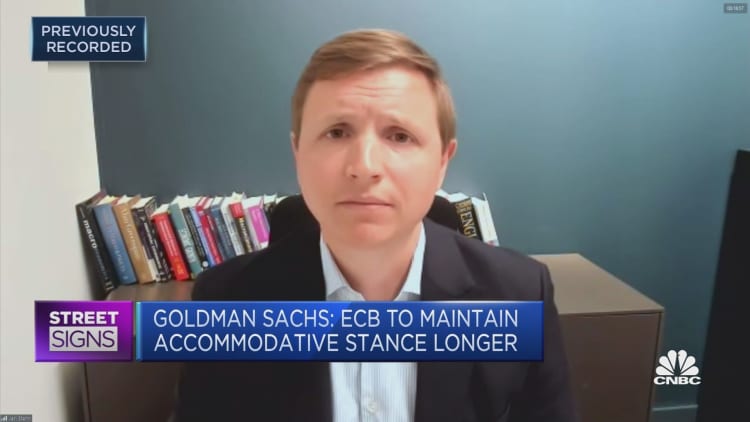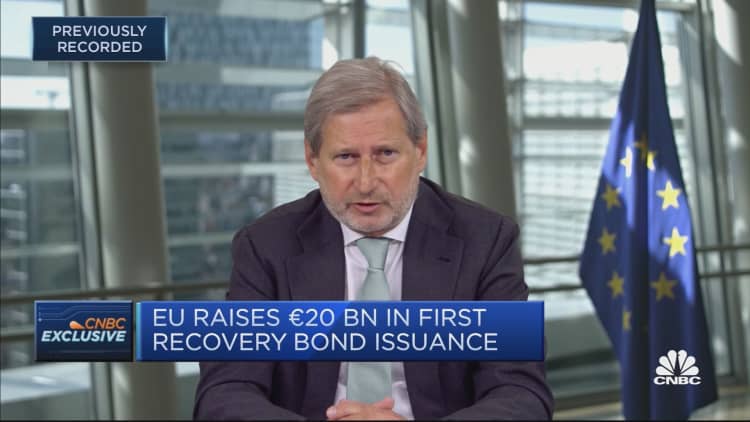LONDON — Experts at Goldman Sachs have laid down their predictions for an expected recovery in the euro zone region, highlighting when they believe the European Central Bank will lift its unprecedented stimulus measures and also suggesting that austerity measures may no longer be relied upon.
Investors in Europe are fixated on what the ECB will do in terms of stimulus, especially after the Federal Reserve in the United States raised its inflation expectations last week and indicated rate hikes for 2023.
Speaking Monday on CNBC's "Street Signs Europe," Sven Jari Stehn, chief European economist at Goldman Sachs, said the latest position from the Fed "should make the [ECB] Governing Council more confident that it can start to reduce the PEPP purchases later in the year."

The ECB introduced a new bond-buying program in the wake of the coronavirus pandemic, called the Pandemic Emergency Purchase Program. This is currently set to last until March 2022 and total 1.85 trillion euros ($2.2 trillion).
"We do think they will step down the PEPP purchase program at the September meeting going into Q4," Stehn said, while also adding that the Governing Council is not "in a rush to follow the Fed in accelerating the exit timetable."
Goldman Sachs last week estimated GDP growth of 5.4% for the euro area this year, above consensus, on the back of progress with vaccination programs.
We have four fiscal reasons for thinking that the return to fiscal consolidation will not be as abrupt as after the GFC and during the eurozone crisis.Goldman Sachs
However, there are still concerns that inflation will not rise to desired levels for the ECB, despite the reopenings that the different euro economies are going through. This would therefore require continued support from the central bank which uses inflation as its key target.
Goldman expects only a "gradual increase" in underlying core inflation to 1.5% in the fourth quarter of this year. The ECB's mandate is to ensure price stability with an inflation target of "close to but below 2%."
No more austerity?
The pandemic also saw governments step up their fiscal support and loosen their budgets — an approach that contrasted sharply with the austerity measures that the euro area had implemented in the wake of the global financial crisis of 2008.
This approach was possible because all of the 19 euro nations decided to temporarily lift the EU's budgetary rules so they would have room to spend more and reduce the economic shock of the pandemic. However, the 19 nations are due to discuss a revision of the EU's budgetary rules, which are seen by some as too restrictive and out of date.
"We do expect a version of the fiscal rules to be applied from 2023 onwards. … However, we have four fiscal reasons for thinking that the return to fiscal consolidation will not be as abrupt as after the GFC and during the eurozone crisis," analysts at Goldman Sachs said in a note last week.
According to Goldman, these are: The expectation that the Green Party will feature in the next German government and demand a looser fiscal policy; the likelihood that there will be higher revenues from taxation; growing calls in Europe for governments to focus on growth ceilings rather than strict debt rules; and the fact that upcoming EU funds will not count toward the deficit and debt targets of the euro nations.
However, the wrangling over future budget rules is expected to be tough with countries such as Austria, Ireland and the Netherlands advocating for a return to a conservative fiscal path the moment that the impact from the pandemic is over.



